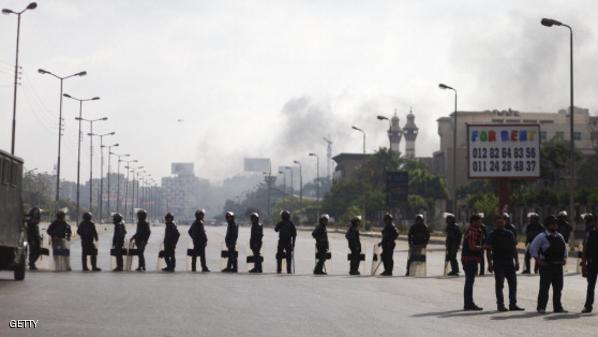This morning, December 3, the Cairo Institute for Human Rights Studies issued a legal commentary on the proposed law on terrorist entities, approved by the Cabinet, led by Ibrahim Mehleb, on November 26, 2014; the law was submitted by the Legislative Reform Committee, which approved the law on November 24. The commentary urges the president not to ratify the law, but to wait for the parliament to ensure a detailed discussion and review of the bill.
The CIHRS believes that the proposed law, referred to the president for ratification and promulgation, constitutes an assault on the constitution and rulings of the Supreme Constitutional Court (SCC) and contravenes Egypt’s international obligations under conventions it has ratified. The CIHRS is wary of government claims that the law will support the state’s counterterrorism efforts and stresses that if the state wishes to pass a law on terrorist entities it must do so without sacrificing the constitution and while ensuring that the law meets international standards.
The eight-page commentary on the bill recognizes at the outset the catastrophic nature of the terrorist attacks now perpetrated almost daily in North Sinai and various governorates, but sees that the government is using the war on terror to pass laws that attack rights and freedoms or in the best-case scenario as a means to evade responsibility for the ongoing failure of the security apparatus to confront terrorist attacks and protect citizens and police and military personnel. The bill assumes that there is a statutory loophole preventing the apprehension and prosecution of offenders, although successive governments since 1981 to the present have all enacted statutory amendments or adopted new repressive legislation to counter terrorism to little positive effect. The government indeed has no effective strategy for fighting terror; it has already declared several organizations to be terrorist entities, such as Ansar Beit al-Maqdis, but it has not put an end to repeated attacks.
The CIHRS rejects this bill for five major reasons, all discussed in the commentary. Firstly, the vague, overly broad terms used to designate terrorist entities in the bill are wholly disproportionate to the severity of the charge and penalties-. How should we interpret phrases such as “infringing the public order,” “harming national unity,” “the safety of society or its security,” “harming individuals,” and “harming the environment”? How can it be proved that a particular activity harmed the safety of society or damaged the social peace, or that the purpose of establishing a particular organization or group is to harm the environment, natural resources, antiquities, assets, buildings, public or private property? All of these flawed terms will be interpreted differently depending on who possesses the power of interpretation, without reference to a clear legal standard. As the commentary notes, this could permit the gagging of opposition voices, political opponents, and civil society advocates of reform and change. This contravenes the constitution and SCC rulings, which dictate that penal statutes be narrowly and clearly defined to prevent their abuse or misapplication.
The commentary also criticizes the fact that under the bill, any group, organization, or association could be designated a terrorist entity and be subject to arbitrary penalties and sanctions for simply “advocating by any means” the suspension of a certain law or the obstruction of the application of provisions of the constitution, laws, or regulations. The phrase “advocating by any means” as used in the law is unqualified and thus includes peaceful means such as reports and statements or calling for peaceful assemblies to bring pressure for the suspension or amendment of a certain law. As such, human rights organizations that advocate the repeal of the protest of law, for example, fall within the scope of this definition, as do demonstrations organized by political entities to protest certain decrees or rulings. The commentary adds that Article 1 of the bill considers entities that obstruct public and private transportation or prevent or impede its movement to be terrorist entities—a designation that could apply to all kinds of demonstrations and protest actions, even peaceful ones.
The commentary also looks at the process by which entities are designated as terrorists under the bill, noting that the bill does not require proof of the commission of specific crimes enumerated in law for designation. A charge by the prosecution is sufficient, after which a provisional order for inclusion is issued by the competent court circuit. This designation entails a set of arbitrary measures and sanctions, enumerated in Article 9 of the bill. The designation and penalties remain in force for a maximum of three years, pending the issuance of a final judicial ruling either upholding the terrorist designation or removing the entity from the list—and this after the entity’s activities have been suspended, its funds and those of its members frozen, and its members’ political rights denied.
The commentary stresses that the bill could be used to dissolve political parties and deny political opponents the exercise of their political rights and their vote for up to three years in the absence of a final judicial ruling, simply due to their affiliation with an entity designated as terrorist by a provisional decree. This violates Article 2 of the law on the exercise of political rights, which makes the denial of citizens’ right of political participation conditional on the issuance of a final court ruling. It also violates Article 17 of the political parties law, which requires a ruling from the first circuit of the Administrative Court, based on the request of the head of the political parties committee and the approval of committee members, in order to dissolve a party.
To view the legal commentary click here
Share this Post

